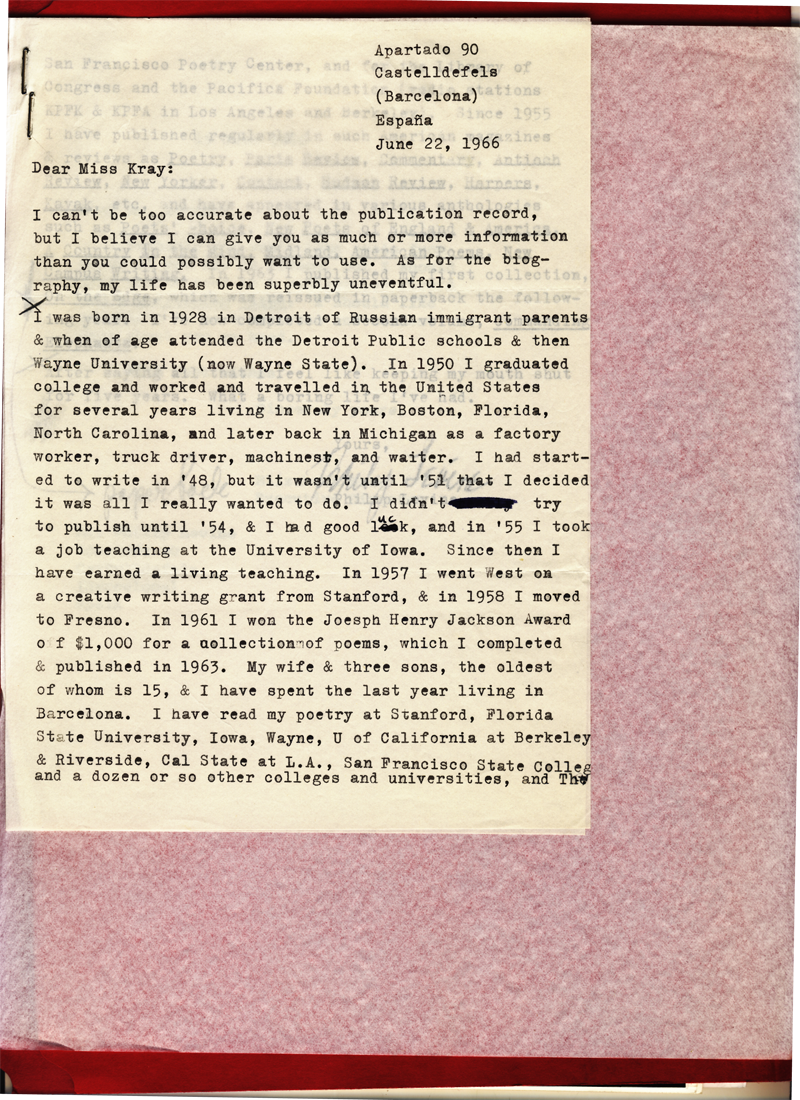

In this 1966 letter from our archive, Philip Levine writes to Elizabeth Kray, the first executive director of the Academy of American Poets, from his then-home in Barcelona about his biography—though he dismisses his life as “boring” and “superbly uneventful.” Ironically, Levine—in both his life and work—was anything but boring. As he shares with Kray, Levine had a working-class upbringing during which he took several industrial jobs and read and wrote poems in his off hours. Levine’s poetry, known for its staunch attention to narrative and frank, character-driven examinations of work, class struggles, politics, and masculinity, draws upon these experiences.
Though they draw upon the ordinary occurrences of his everyday life, Levine's poetry often spotlights the extraordinary in his examinations of his youth and hometown. “There’ll always be working people in my poems because I grew up with them, and I am a poet of memory,” Levine said in an interview with Edward Hirsch. “I once thought of myself as the poet who would save the ordinary from oblivion. Now I think poetry will save nothing from oblivion, but I keep writing about the ordinary because for me it’s the home of the extraordinary, the only home.”
When Levine wrote this letter, he was still early in his literary career; he had published his first collection, On the Edge, in 1963, and he mentions his completion of a second collection, which he calls Commanding Elephants. Commanding Elephants, titled for his poem of the same name, became Not This Pig and was published by Wesleyan University Press in 1968. After publishing his second book, Levine published several more, one of which, The Names of the Lost (Macmillan Publishing Company, 1975), was inspired by his time spent in Spain from 1965 to 1966. The Names of the Lost also won the 1976 Lenore Marshall Poetry Prize.
Levine went on to receive numerous other honors, including the American Book Award for Poetry, the National Book Award, the National Book Critics Circle Award, and the Pulitzer Prize. In 2000, he was elected a Chancellor of the Academy of American Poets. In 2011, he was named U.S. poet laureate, and two years later he received the Wallace Stevens Award for proven mastery in the art of poetry.
see more photographs and ephemera from the archive
